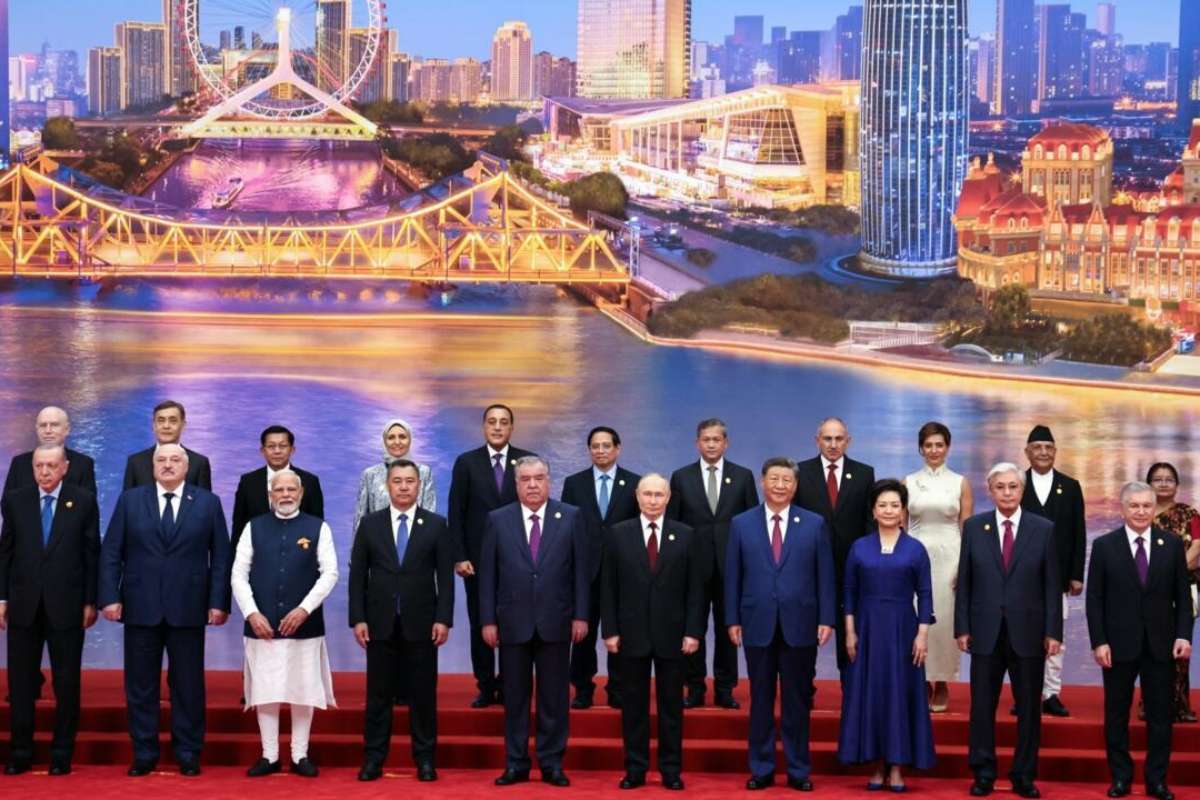Key Points:
- Xi Jinping proposed a multipolar global order and pledged financial support to SCO members.
- China-India ties warmed as Xi and Modi agreed on steps to rebuild trust and cooperation.
- SCO signaled its growing role as a strategic counterweight in global governance.
The Shanghai Cooperation Organisation (SCO) summit in Tianjin marked one of the largest gatherings of its kind, drawing leaders from more than 20 nations. Among the most watched moments was Chinese President Xi Jinping’s red-carpet welcome for Russian President Vladimir Putin, a clear display of strengthened ties between Beijing and Moscow. Indian Prime Minister Narendra Modi also joined the high-profile line-up, setting the stage for wide-ranging discussions on security, economics, and global governance.
In his opening address, Xi Jinping unveiled a blueprint for a new multipolar order. He emphasized the need to move away from Cold War-era divisions and called for an inclusive system where emerging economies play a larger role. Stressing financial stability and technological progress, Xi pledged billions in aid and loans to support SCO members, positioning the organization as a central pillar for economic and security cooperation across Eurasia.
The summit highlighted how the SCO is evolving into more than just a regional bloc. With leaders stressing collaboration in areas like energy, artificial intelligence, and infrastructure, the event projected a collective ambition to offer alternatives to existing Western-led systems.
China-India Relations Enter Softer Phase
A key development on the sidelines was the meeting between Xi Jinping and Narendra Modi, signaling a shift toward warmer ties between the two Asian giants. After years of heightened tensions along the disputed border, both sides stressed that bilateral relations should be defined by development rather than confrontation.
Concrete steps were announced to rebuild trust, including the resumption of direct flights, the re-issuance of visas, and continued disengagement along sensitive border points. Modi noted that de-escalation had created a calmer environment, while Xi underlined that the two nations share more common interests than differences.
Their joint message at the summit was striking: India and China are not rivals but partners, committed to prosperity in the face of global economic uncertainty. By signaling unity, both leaders sought to reassure regional partners that cooperation would take precedence over confrontation.
SCO’s Expanding Role in a Shifting World
The Tianjin summit was not only about diplomacy—it was also about global positioning. Xi Jinping framed the SCO as carrying “greater responsibilities” for maintaining peace and stability, an implicit nod to the group’s growing strategic weight. With ten permanent members and an expanding circle of observers and partners, the SCO is increasingly viewed as a counterweight in a multipolar world.
Yet, questions remain over its long-term effectiveness. While the SCO projects ambition, its influence is uneven, shaped by the varied priorities of its members. Still, the summit demonstrated how China, Russia, and India are leveraging the platform to shape new norms in trade, technology, and security.
The Tianjin gathering ultimately underscored a larger message: the Global South is seeking a stronger collective voice. Through financial commitments, diplomatic outreach, and a unified call for fairer global governance, the SCO is positioning itself as a force aiming to redefine the balance of power in the decades to come.
Visit Visionary CIOs for the most recent information.











